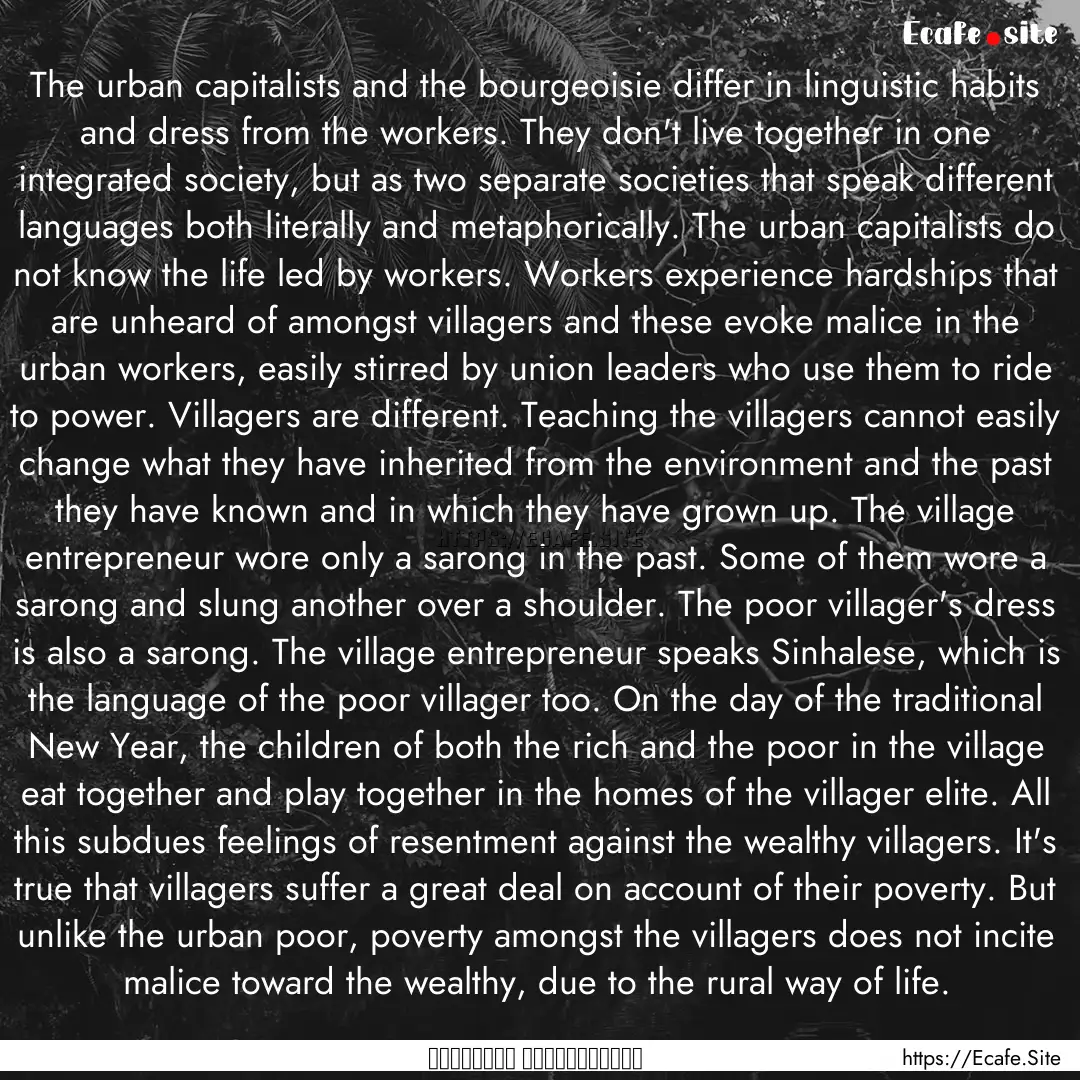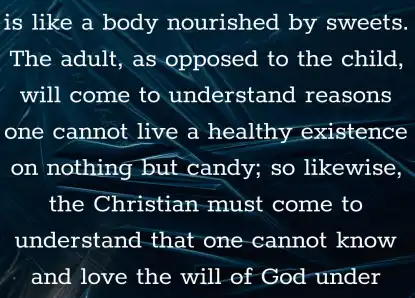
Report, if you have a problem with this page“ The urban capitalists and the bourgeoisie differ in linguistic habits and dress from the workers. They don't live together in one integrated society, but as two separate societies that speak different languages both literally and metaphorically. The urban capitalists do not know the life led by workers. Workers experience hardships that are unheard of amongst villagers and these evoke malice in the urban workers, easily stirred by union leaders who use them to ride to power. Villagers are different. Teaching the villagers cannot easily change what they have inherited from the environment and the past they have known and in which they have grown up. The village entrepreneur wore only a sarong in the past. Some of them wore a sarong and slung another over a shoulder. The poor villager's dress is also a sarong. The village entrepreneur speaks Sinhalese, which is the language of the poor villager too. On the day of the traditional New Year, the children of both the rich and the poor in the village eat together and play together in the homes of the villager elite. All this subdues feelings of resentment against the wealthy villagers. It's true that villagers suffer a great deal on account of their poverty. But unlike the urban poor, poverty amongst the villagers does not incite malice toward the wealthy, due to the rural way of life. ”

මාර්ටින් වික්රමසිංහ
From : Yuganthaya



